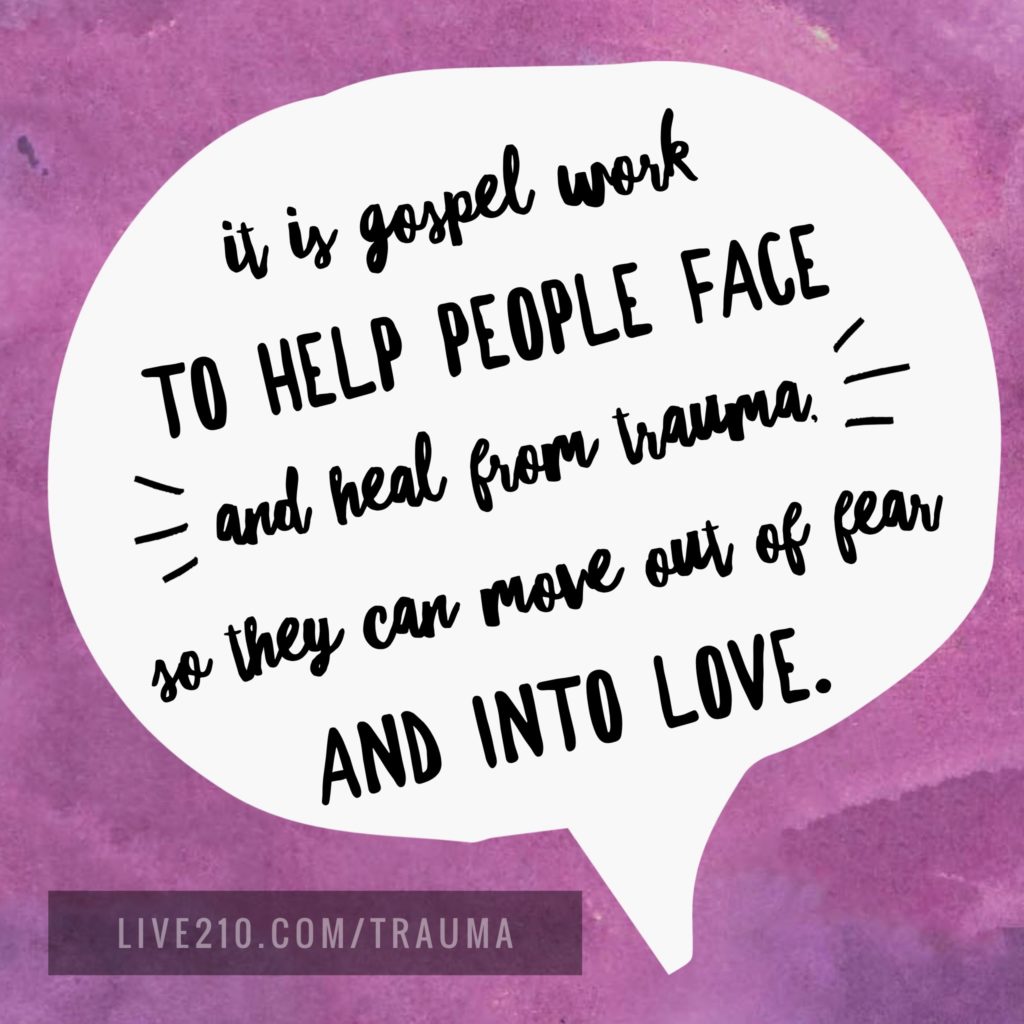6 min. to read.
We are “fearfully and wonderfully made,” says Psalm 139:14. When life is good, this seems a glorious mystery. When someone finds themselves stuck in the painful waves of unresolved trauma, this same mystery feels terrifying.
Someone in this place of fear and confusion ought to find shelter in the church. Followers of Jesus ought to be their greatest allies, helping them to get the healing they need. Too often, because of generations of mistrust in Psychology and science in general, just the opposite happens. Then, these hurting people are left to fend for themselves. Even worse, at times the church makes their trauma worse, but it could be different.
Learning how to walk with people who suffer from the anguish of trauma begins with education, and one of the best places to start is with Bessel van der Kolk’s landmark book, The Body Keeps the Score: Brain, Mind, and Body in the Healing of Trauma. In this book, bringing together decades of therapeutic experience and clinical findings from a wide range of disciplines, Dr. van der Kolk unveils some of the inner workings of this mystery, showing how trauma impacts our mind and body.
It started with soldiers.
The study of trauma began with combat veterans. Clinicians now agree that the same emotional and cognitive injuries first noticed in soldiers are also present for many others. We’re coming to understand that nearly any harrowing experience can cause a trauma injury, particularly if the victim was unable to take action or respond meaningfully at the time of the incident. The National Center for PTSD estimated that in 2000, between 5-6 million US adults had PTSD. They predicted this number would increase dramatically due to global events that threaten life and livelihood. (Source). That was before Covid-19!
Learning how to deal with the epidemic of trauma has become essential for our society. Trauma is no longer an oddity. Every church, no matter how small, already has people who carry it’s scars. One crucial perspective, central to van der Kolk’s ideas about treating trauma, and essential for the church to learn is this: Trauma is not “all in the mind.”
Trauma symptoms emerge from a brain and body stuck in another time and place. “Trauma is not just an event that took place sometime in the past,” writes van der Kolk. “It is also the imprint left by that experience… (which) results in a fundamental reorganization of the way mind and brain manage perceptions” (p.21). Many behaviors and even some symptoms often labeled as mental illness are organic. “We now know that (these) behaviors are not the result of moral failings or signs of lack of willpower or bad character—they are caused by actual changes in the brain”(p.2).

We can do better.
As a pastor, I am regularly invited into people’s stories, whether for counsel, prayer, or even simply as a witness. I’ve had so many interactions with traumatized people, and I shudder at how I’ve often responded.
Very often, we in the church have made things worse in our attempt to help. Moralizing makes no difference. Telling people to “try harder” or “just have faith” ignores that most trauma responses are not deliberate. Spiritual solutions like accountability groups, devotional practices, and cursory prayers for healing can encourage “spiritual bypassing,” where people use religious practices and language to avoid facing painful emotions and hard inner work. Continual focus on “winning the victory” or the blessings of healing can leave people with long-term complex PTSD feeling alienated from the church or even God, if they sense their spirituality and level of healing does not measure up to their church’s expectations.
Where van der Kolk suggests we need to relate to trauma victims as whole people, we in the church have often treated hurting people as a set of disembodied beliefs attached to a body full of sinful motivations and desires. We’ve focused on correcting wrong beliefs. We’ve taught that the body is something to manage and subdue. We’ve implicitly (and sometimes explicitly) counseled people to ignore their emotions.
It’s no wonder there’s an emerging group who identify as having church-related trauma. While many of these weren’t initially injured in church, church people and leadership re-traumatized them by not listening, not taking them seriously, victim-blaming, and even in some cases, supporting and justifying their abusers. It’s even worse for those who were directly hurt by church leaders!
Imagine trauma-informed church!
Understanding trauma in this way should radically change how churches relate to the behavior of trauma victims. Imagine how much different our support could look.
If trauma injuries emerge through a loss of control, wouldn’t it be helpful for churches to focus on growing people’s agency rather than their comfort with submission?
If trauma disconnects people from their bodies, wouldn’t it make sense for churches to help people learn to be present to their bodies in healthy ways, rather than demonizing the body and training people in a kind of spiritualized disassociation?
Since trauma often disrupts the ability to attach, couldn’t churches, as chosen communities, create safe spaces to practice new and healthy relational attachments rather than propagating obligatory relationship structures with poor boundaries?
Sadly, for many churches, theology and power structures stand directly in the way of these kinds of healing practices. 1st Corinthians 13 (NIV) tells us that love keeps no record of wrongs. Dr. van der Kolk tells us that in the case of trauma, our bodies do keep a record of the wrongs done to us. It seems, then, that it must be gospel work to help people move out of the stuck, fearful place of trauma toward a place where they know they are loved, where they can love themselves, and as a result, their bodies can release this painful record of wrongs that generates so much suffering.
If these thoughts resonate with you, I recommend you read The Body Keeps the Score yourself. It’s accessible reading, will change the way you think about trauma, and will ignite your imagination about how we can serve hurting people.
Disclosure of Material Connection: Some of the links in the post above are Affiliate Links. This means if you click on the link and purchase the item, I will receive an infinitesimal affiliate commission, which I solemnly swear to spend on important books and trivial electronics. Regardless, I only recommend products, services, or books that I have personal experience with and that I believe will add value to my readers.More information here.
